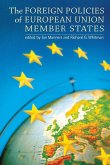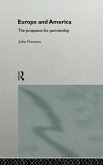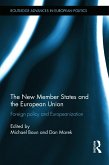This text provides a clear and current overview of the motivations and outcomes of EU Member States regarding their foreign policy-making within and beyond the EU. It provides an in-depth analysis of intra-EU policy-making, and sheds light in an innovative and understandable way on the lesser known aspects of the inter-EU and extra-EU foreign policies of the 27 Member States. The text has an innovative method of thematic organisation in which case study state profiles emerge via dominant foreign policy themes. The text examines the three main policy challenges currently faced by the 27 Member States. First, EU Member States must cooperate within the mechanisms of the EU, including the Common Foreign and Security Policy (CFSP). Intra-EU policy-making sees the states cooperating according to well-practised inter-governmental methods, but along supranational lines for a widening number of areas. Second, EU Member States continue to construct their own inter-EU foreign policies. In other words, bilateral arrangements between EU Member States but largely independent of the treaties and structures of the EU itself Third, is the sovereign prerogative exercised by all EU Member States to construct their own foreign policies on everything from trade and defence with the rest of the world However, in directing extra-EU foreign policies, EU Member States directly experience the tension between the practice of Europeanisation and the pull of sovereignty. This combination of clarity, thematic structure and empirical case studies make this an ideal textbook for all upper-level students of European foreign policy, comparative European politics and European studies.
Hinweis: Dieser Artikel kann nur an eine deutsche Lieferadresse ausgeliefert werden.
Hinweis: Dieser Artikel kann nur an eine deutsche Lieferadresse ausgeliefert werden.








